“I’M STILL ALIVE.”
Much to the irritation of his opponents, outspoken palaeoanthropologist-cum-conservationist-cum-politician Richard Leakey is not done yet. Ahead of his talk at FUSE, he spoke to Katie Palmer about climate change, ivory burning and the perspective-shifting power of TV.

Most interviews with Richard Leakey begin by detailing his parentage; yet to open in such a way is almost to undermine all that he has achieved and endured, suggesting that somehow his genes automatically set him on the accomplished, varied and at times downright dangerous course his life has thus far run. But within five minutes of speaking with the palaeoanthropologist-cum-conservationist-cum-politician, it’s clear to me that this is a man who decides his own fate.
The first time he broke away from a preconceived ideal of how his life ought to look was when he quit school at the age of 16 in order to pursue an entrepreneurial venture in the trapping and skeleton supply business. The second was when his refusal to tow the line in working for his father led him to give up his work at the Centre for Prehistory and Palaeontology and instead form the Kenya Museum Associates. Another came when he hijacked a Research and Exploration Committee of the National Geographic Society meeting in order to ask that funds meant for his father’s project be diverted to his own at Koobi Fora (where his team went on to make some major discoveries). Obstinate? Perhaps. Determined? Absolutely.
Indeed, Leakey is no stranger to controversy – from his appointment as administrative director of the National Museum, prompting its curator, Robert Carcasson, to resign; to his fierce, live TV debate with palaeontology rival Donald Johanson; to his appointing of armed units authorised to shoot poachers on sight on becoming the Kenya Wildlife Service’s first chairman in 1989; to his 1995 launch of the anti-government Safina political party in protest of “the deterioration of public life, corruption and mismanagement”. A 1993 plane crash that caused him to lose both his lower legs was suspected sabotage (though never proven), which goes to show that his views are brave, if not always popular.
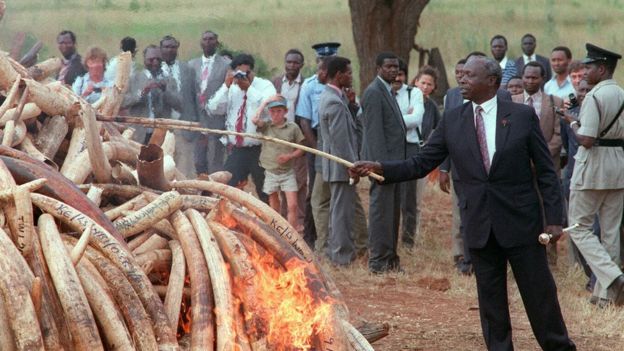
What’s most interesting – endearing, even (if you can use that word to describe such an intimidating force) – about Leakey is that he’s not afraid to wear a target on his chest for the sake of something he believes in. Take his involvement in Kenya’s burning of 105 tons of government-confiscated elephant and rhino ivory in 2016, which gained viral media coverage and prompted fierce Twitter debates all over the globe. This was actually Kenya’s second ivory burn, Leakey having orchestrated the former – the first of its kind – while serving his first stint for the Kenya Wildlife Service back in 1989 (many other countries have since followed suit). “After the first burn the market crashed completely, and not just in Kenya but in many parts of Africa”, he tells me.
What’s changed since then, I wonder? “I think gradually the interest in ivory resumed; the selling of stockpiled ivory once again made ivory okay to be associated with if it was legal. I don’t think anything was done about ensuring that illegal ivory couldn’t get back on the market. And the price of ivory shot up five or six years ago to a point where elephants were being decimated at an extraordinary rate.” So on his return to the Kenya Wildlife Service in 2015 (his first tenure ended with a very public resignation in 1994 amid claims of corruption and mismanagement), Leakey got to work organising another – this time far bigger and, thanks to social media, even more widely talked about.
First and second time around, critics have been vocal in their accusations that burning an estimated $3 million and $150 million worth of ivory respectively is irresponsible and illogical, considering Kenya’s poor status. There are also those who argue that eliminating five per cent of the world’s current stockpile does nothing but drive up the value of the remaining ivory; but Leakey’s moral compass is unwavering. In his speech before the 2016 burn he called countries that hoard ivory stocks “speculators on an evil, illegal commodity”, going on to insist that “There can be no justification for speculating price rises in ivory down the road, and they should be shamed out of their position once and for all.”
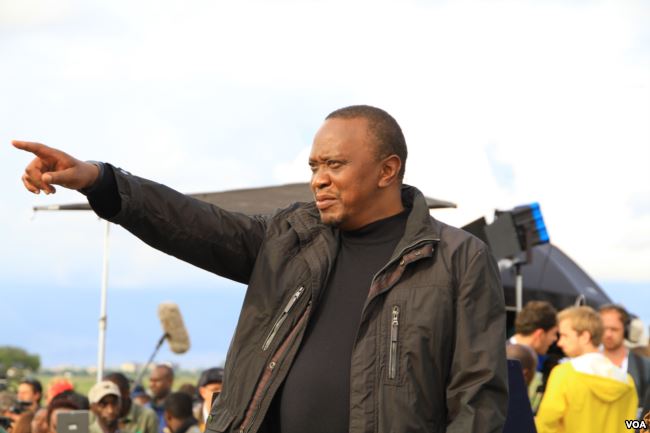
Kenyan President Uhuru Kenyatta joined Leakey in addressing the press last year, telling them, “Kenya is making a statement that for us ivory is worthless unless it is on our elephants”. Therein lies a key tactic in Leakey’s approach to, well, life: making statements that, whether you agree or disagree, can’t be ignored. “When Kenya burns $100 million worth of ivory, they’ll say, ‘What the hell was that about?’ It will help open their eyes to what is actually happening”, he told Scientific American at the time.
Almost a year on, it seems Leakey’s tactic is working. “I’m enormously pleased that China has announced that it will end all trade in ivory in the course of this year… but I’m quite sure the discussion of ivory in a very public sphere has played a significant role.”
Granting public access to information surrounding conservation issues is high on Leakey’s agenda for change. He cites the case of the Marsh Pride lions in Kenya, who in 2015 were poisoned allegedly in revenge for attacking a local herder’s cows. Despite international uproar – the lions had been stars of the BBC’s Big Cat Diary since 1996 and were thus wildlife ‘celebrities’ in many countries the world over – there was a notable silence on the part of the Kenyans. Accounting for this, he goes on: “Kenyans had never seen those films, so how could they get alarmed when they hear that one’s been killed?”
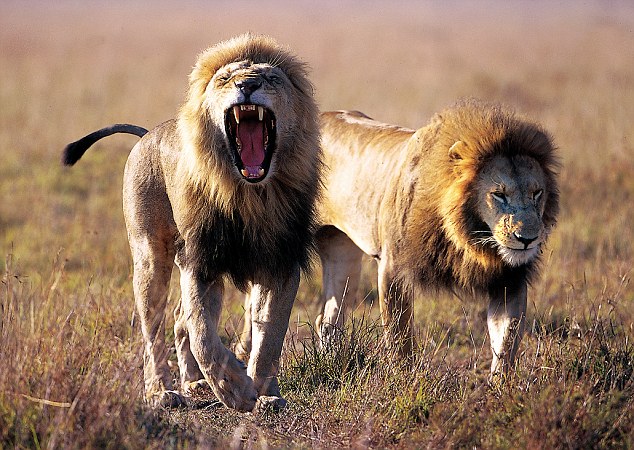
In this, Leakey unknowingly echoes the basic sentiments of Italian soapstar-turned-travel-maverick-turned-conservation-activist, Benedetta Mazzini, who at the 2016 Conservation Lab led a discussion on ‘how to harness the power of celebrity in conservation efforts’. For hardcore conservationists who’ve made saving the fate of the planet their life’s work, the fickleness of celebrity may appear to undermine the seriousness of the subject. But Leakey subscribes to the adage that people can’t (or aren’t inclined to) protect what they don’t know, explaining, “I think we’ve got to understand that humans are humans, whether they’re South African, Kenyan, Tanzanian, Alaskan – it doesn’t matter. If they know the issues, most people have a gut reaction that is very similar.”
There were rumours that Leakey himself, already a celebrity in the conservation world, would be forever immortalised in a film about his life, directed and produced by Angelina Jolie. Leakey would, apparently, have been played by Brad Pitt (a bolster for anyone’s ego, surely). But since the couple’s very publicly documented split, he hasn’t heard from either of them and assumes the project has taken a back seat.
Seemingly unfazed by his own brush with Hollywood fame, Leakey’s only hint of disappointment stems from the potential impact such a project, done right, might have had on attitudes towards conservation across the globe. “I think movies like that, played particularly in Eastern countries like China and Japan, could have a very big impact on the consumer market. Because somebody like Brad Pitt could have conveyed the message that ivory is bad because it’s destroying these wonderful creatures. I think a lot of people would sit up and take interest.”
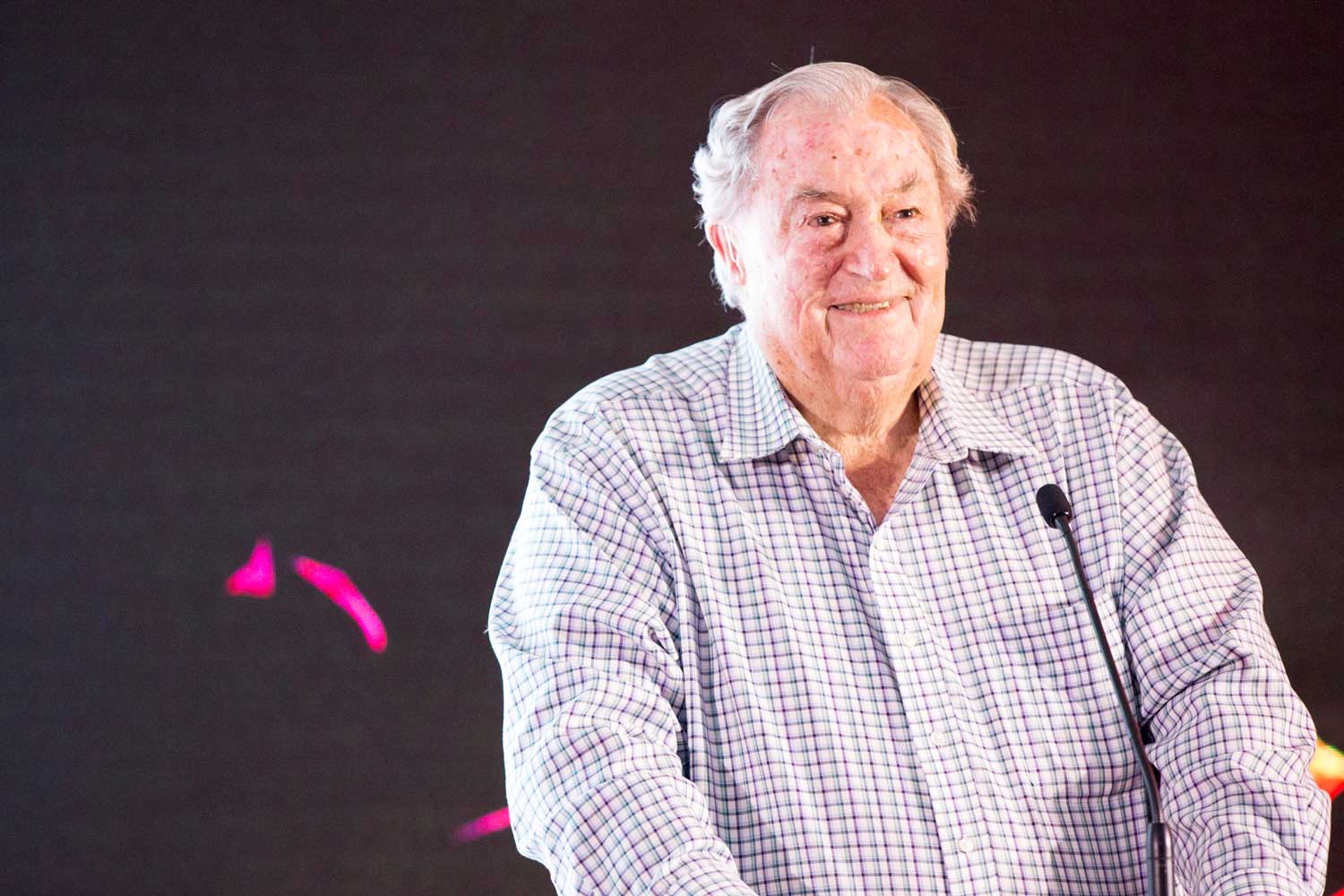
But while he acknowledges that celebrities can generate great PR for conservation issues on an international level, Leakey insists that “for the most part the challenge is not in Western countries or technological countries; the challenge is in countries like Kenya and South Africa, where the vast majority of the population simply are not in the position to see conservation as an interesting option given that they have no jobs, they have very little security for their children, and poor health… I think we’ve got to remember that the foreign, external, celebrity issue is more to keep alive a potential aid community; but the real issues are going to have to be settled in the African countries by African organisations.”
One way in which Leakey is attempting to generate empathy closer to home is through his work with WildlifeDirect, which he founded in 2005 (only stepping down as chairman when he returned to the Kenya Wildlife Service just over a year ago). Along with having a positive impact on tightening Kenyan laws surrounding wildlife crime, “currently and perhaps as importantly – maybe more importantly – WildlifeDirect has focused on combining their energies with one of the TV stations in Kenya, working together to get international TV outlets to give films to Kenya, so that every Saturday now on a Kenyan television screen you can watch a wildlife documentary shot somewhere in East Africa or indeed anywhere in Africa.
“The viewership of these Saturday afternoon programmes has far exceeded anybody’s expectations… So I think the power of TV by showing documentaries has been demonstrated and is now being effectively used to totally change public opinion in Kenya as to the importance of protecting parks and protected species.” And public opinion, according to Leakey, will be the clincher when it comes to conservation from here on out: “I think the biggest contribution going forward will be the facilitation of the ownership of wildlife by the middle classes, who will insist that their leadership and politicians and businessmen, hoteliers and tour operators continue to do the right thing for the right reason.”
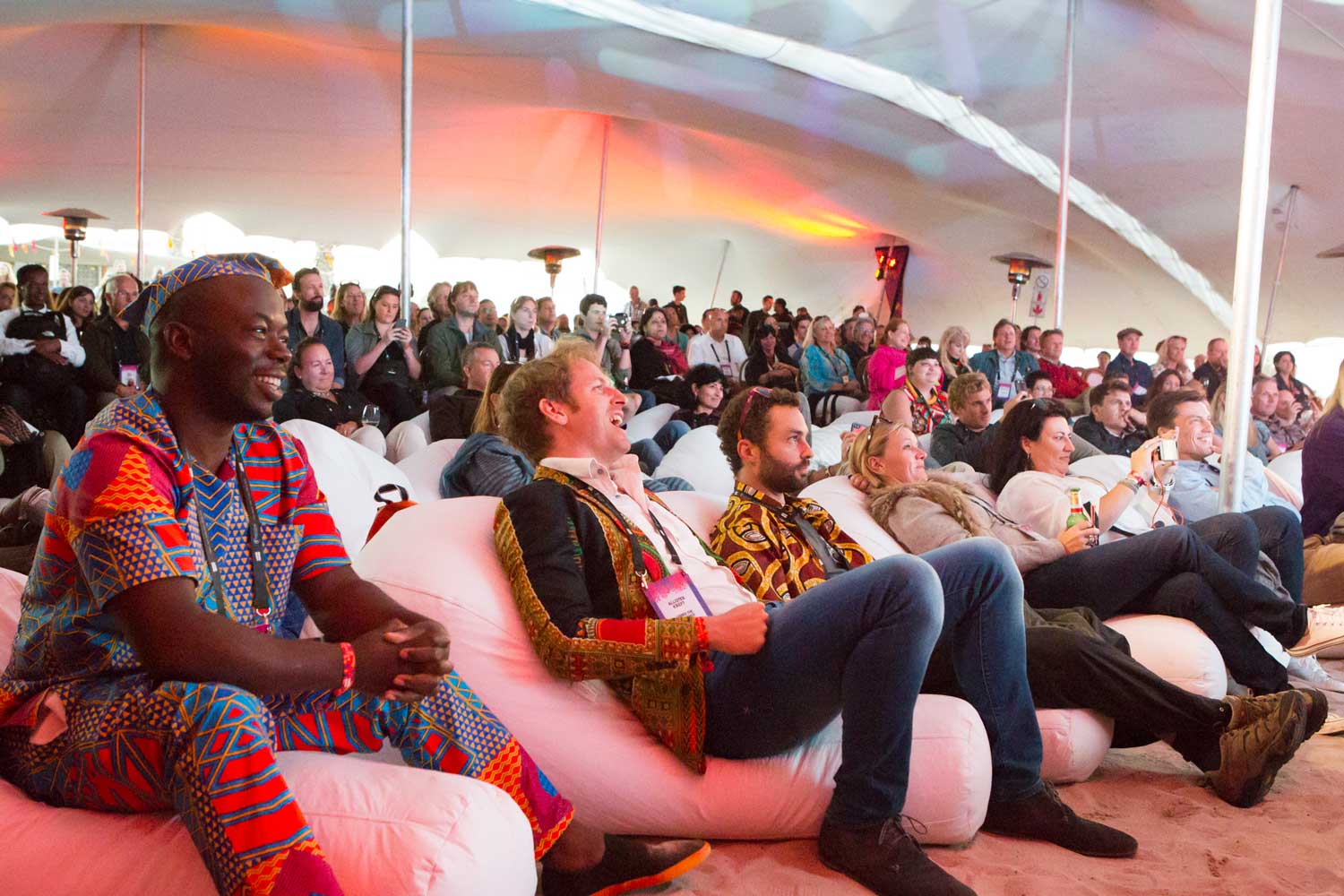
If the public are in line to become conservation’s greatest ally, I ask, then where lies its most formidable adversary? “Climate change”, he asserts matter-of-factly. “We’ve put all our animals in national parks. They’re like islands. Climate change is affecting everything around them, as well as inside them. There’s nowhere for these animals to go. There’s less and less water going into these parks; vegetation is drying up. Certain species in the food chain will ultimately become extinct before others.
“I think we’re seriously facing a moment when massive extinctions are going to be taking place and if we’re really serious about trying to retain biodiversity in these protected areas, I think we’ve got to take a much stronger hand in terms of scientific research, management and efforts to mitigate not based on the mighty dollar, not based on tourism to grow the economy, but simply on a battle to save these creatures for a better day.”
With that in mind, what’s the one piece of advice he would impart to help further conservation efforts today? “My advice is the NGOs, the well-meaning private investors, private supporters, government institutions, government organisations and official organisations should actually do more talking to each other rather than at each other. We’ve simply got to give up this territorial imperative of, ‘We’ve got our patch and don’t you tell us what to do here.’ I think the body of experience that’s been learned over the years is phenomenal and if we can’t use that collectively to try and do a little better than we are doing, then I have no hope.”
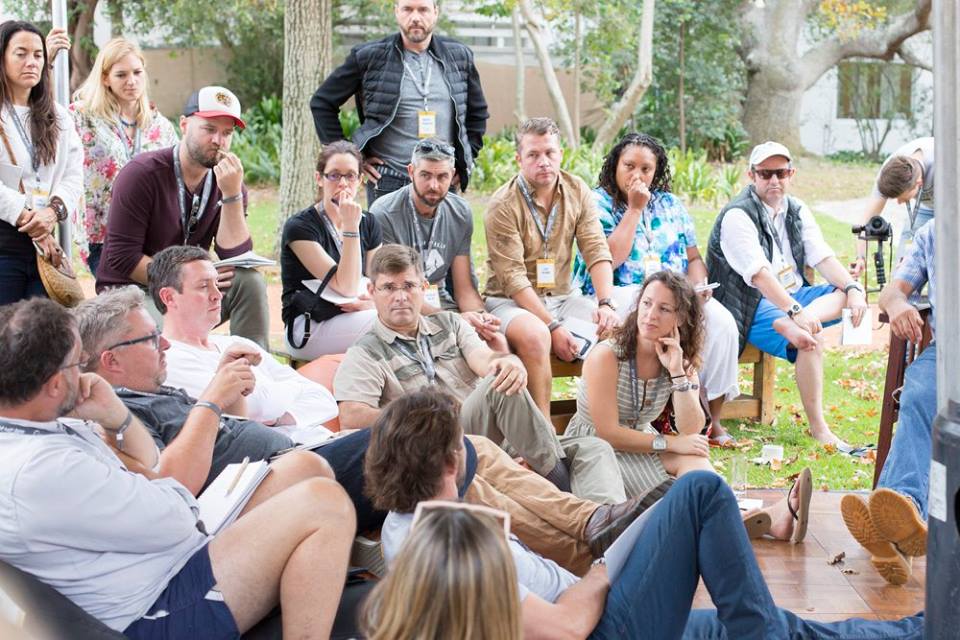
To my mind, Leakey’s body of experience alone is pretty phenomenal. When I point out as much, he remains modest: “I’ve enjoyed everything I’ve done in life. I’ve enjoyed the ups and the downs; I’ve enjoyed my time in wildlife – I still do. I’ve enjoyed my time in studying prehistory and making new discoveries. I’ve enjoyed my life wading into politics; I’ve enjoyed my life playing a significant role in running an African government under a very powerful dictator-type president some years ago. It’s all been a lot of fun and it continues to be fun.”
So, I venture, what’s his greatest achievement so far? Without missing a beat he replies, “I’m still alive.” Despite a glimmer of humour so brief I almost miss it, I think back to that target on his chest, and I know that he means it.











